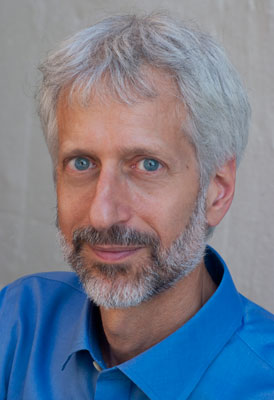Business Growth Podcaster Organizes Virtual Conference with Remote Team


 David Shriner-Cahn appreciates being able to talk with a person who is sitting in the room with you. You can read their body language and see how they’re responding to what you’re saying. But he also values being able to reach more people more often through technology.
David Shriner-Cahn appreciates being able to talk with a person who is sitting in the room with you. You can read their body language and see how they’re responding to what you’re saying. But he also values being able to reach more people more often through technology.
That’s why the founder of the business growth podcast Smashing the Plateau is organizing an intensive business conference that will be held entirely virtually. The 3DAY MBA will feature more than 24 speakers presenting online over three days about finances, communication, mindset and marketing for business leaders.
David is planning the virtual conference remotely with co-founders Jaime Jay and Anthony Witt, whom he met online through their podcasts. The event takes place April 17-19.
How do you plan such a big event when you aren’t even in the same state?
The process is the same as if we were meeting in person to plan an in-person event. You need to manage the work. You need to manage the calendars. You need to set up tasks and be clear of who is in charge of what.
The three of us meet twice a week on a scheduled basis. We use a shared doc to view the agenda and notes for each meeting. We use Slack to communicate as a team.
Why have a virtual conference?
Our thought was that this would allow us to help more people. The advantage to doing things virtually is that you can access the same content for a fraction of the cost of traveling and having to spend three days away. In fact, the conference is free to anyone who wants to attend live over the course of the three days.
One benefit of a conference is being able to network and make connections. How do you do that when an event is virtual?
There is a discussion format as part of the technology we are using to present the conference. People will be able to watch the presentations and ask questions. Additionally, we will be providing ways for people to connect and interact following the conference using online channels. People just need to register, which they can do at no cost.
How can participants get the most out of a virtual conference?
As you would with any conference, you need to take in the presentations and then put what you’ve learned into action. Hear what the speakers have to say and then follow their suggestions.
How is learning from a virtual conference different than one in person?
If you look at the data about how people learn, the most effective method is experiential learning. You get information and you take action. That can happen whether you’re getting the information online or in person. The most important thing is how you respond to the material.
Why is there such a growing interest in online learning?
The internet has exponentially increased the amount of information that is available. People have become accustomed when they want to know something to going online and looking it up. Our goal with the conference is to put out high-quality information and set up a situation that allows people to build relationships.
For you, how have things changed in terms of being able to work remotely?
I remember buying the first answering machine for home. It was a huge deal and very expensive. But we figured we stood a better chance of connecting with people if they could leave a message.
Back then, if you were making a call and the other person wasn’t there, you would just give up. Then came this idea of being able to leave a recorded message. You could communicate with people in a very asynchronistic fashion. It was a big change.
Of course, then email came along. All the technology we have today really enables collaborations from all over. We have the ability to connect in ways never before possible.
What is your advice to someone who is considering remote work?
You need to think about the realities of what it will be like to work from home. Think about your environment and whether you will have a private space. Can you sit by yourself all day long or will that drive you crazy? One option might be a co-working space.
Think about your working style. Do you need quiet or do you need to hear the fire engines? Also, think about the kind of work that is best for you. Do you need structure or do you want more flexibility? You have to find what will work best for you.
